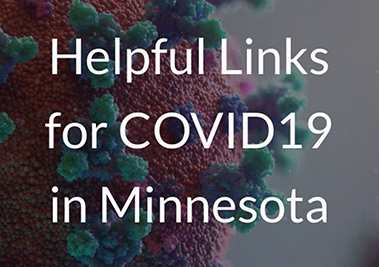This week on the Minnesota Native News health report, Native people face many health-related obstacles that are beyond life in the pandemic. Reporter Dalton Walker explains with this week’s stories.
The numbers are staggering, and we aren’t talking about the effects of COVID-19 pandemic.
The opioid epidemic has been around for years and will likely outlast the coronavirus pandemic. Opioids are prescription medication known as painkillers. When abused, it can lead to overdose or be fatal.
Opioid overdose deaths have increased nearly every year in Minnesota since 2000, according to Minnesota Department of Health data. Since 2017, we have lost nearly 1,200 people…. who died from overdoses… in our state. But the data doesn’t even include this year or last year so the true number is even higher.
In Minnesota, Native people are seven times as likely to die from a drug overdose as white people, according to the state.
Recently, three Ojibwe bands joined local law enforcement to bring attention to the dangers of opioid abuse after 10 fatal overdoses in the Beltrami County area in a span of roughly two months.
“It’s important to know that these drugs can be fatal upon the first use,” a joint news release said. White Earth, Red Lake and Leech Lake are working with Bemidji and Beltrami County.
Two Native organizations with ties to Minnesota are beneficials of Indian Health Service’s grants to combat the opioid epidemic. The Indian Health Board of Minneapolis and the Native American Community Clinic, also in Minneapolis, were each awarded $500,000 as part of an opioid intervention pilot project.
In other news.
Lt. Gov. Peggy Flanagan, White Earth Nation, explained why it’s important to get vaccinated, and praised tribes for leading by example with high vaccine rates. Flanagan was recently on Indian Country Today’s newscast.
“Someone asked me the other day, ‘why do you think that is, why do you think vaccination rates are so high?’ I said, because we care about each other. Our communities have been through pandemics before, and we have stories about how those have impacted our people and our families. I am not surprised that we have been able to do this especially after the devastation we have seen in Indian Country. When given the opportunity to protect our own people, Indian Country has stepped up.” she said.
And finally…
The Mille Lacs Band of Ojibwe is in need of foster families for children.
In a recent video update to tribal citizens, Chief Executive Melanie Benjamin explained why it’s important for those that can foster to step up for the children in need of a home. Benjamin said interested citizens wanting to foster or learn more about the process can call the tribe’s Family Services.
“We want to make sure that we keep our children in our community, and immersed in the culture and our family. Sometimes, parents are in a crisis and so therefore we will need foster families,” said Benjamin.



 Artist Steve Premo’s Gifts for Painting, Drawing, and Graphic Design
Artist Steve Premo’s Gifts for Painting, Drawing, and Graphic Design